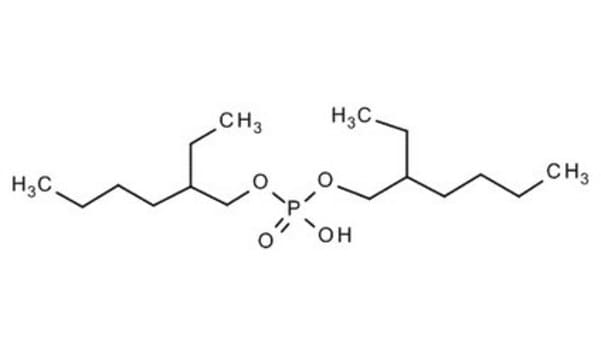38224
Diisooctyl-thiophosphinsäure
technical, ~85% (T)
Synonym(e):
Bis-(2,4,4-trimethylpentyl)-thiophosphinsäure
About This Item
Empfohlene Produkte
Qualität
technical
Qualitätsniveau
Assay
~85% (T)
Form
liquid
Brechungsindex
n20/D 1.48
Dichte
0.93 g/mL at 20 °C (lit.)
SMILES String
CC(CC(C)(C)C)CP(S)(=O)CC(C)CC(C)(C)C
InChI
1S/C16H35OPS/c1-13(9-15(3,4)5)11-18(17,19)12-14(2)10-16(6,7)8/h13-14H,9-12H2,1-8H3,(H,17,19)
InChIKey
KUYLHALFMPOMKK-UHFFFAOYSA-N
Allgemeine Beschreibung
Anwendung
Signalwort
Danger
H-Sätze
Gefahreneinstufungen
Skin Corr. 1B
Lagerklassenschlüssel
8A - Combustible corrosive hazardous materials
WGK
WGK 3
Flammpunkt (°F)
204.8 °F - closed cup
Flammpunkt (°C)
96 °C - closed cup
Persönliche Schutzausrüstung
Faceshields, Gloves, Goggles, type ABEK (EN14387) respirator filter
Hier finden Sie alle aktuellen Versionen:
Besitzen Sie dieses Produkt bereits?
In der Dokumentenbibliothek finden Sie die Dokumentation zu den Produkten, die Sie kürzlich erworben haben.
Unser Team von Wissenschaftlern verfügt über Erfahrung in allen Forschungsbereichen einschließlich Life Science, Materialwissenschaften, chemischer Synthese, Chromatographie, Analytik und vielen mehr..
Setzen Sie sich mit dem technischen Dienst in Verbindung.








